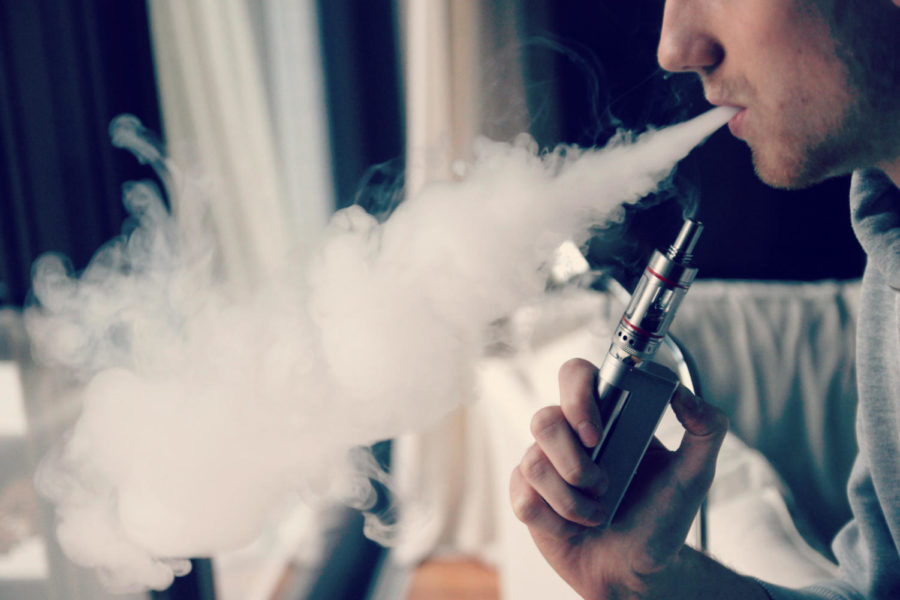FDA Starts Cracking down on Vape Flavoring
Photo Courtesy of vaping360.com
Contrary to the misconception that vape products just have water and flavoring, they still contain nicotine, which is highly addictive and can greatly alter a teen’s mind as it develops.
Prominent electronic cigarette manufacturer JUUL Labs announced on Nov. 12 that it will remove most of its collection of highly popular e-cigarette flavors from retail stores and close promotional social media accounts. Soon after, on Nov. 15, the Food and Drug Administration announced a ban on all flavored vape products not sold in age-restricted businesses and restrictions on marketing toward minors.
“E-cigarettes cannot, and will not, come at the expense of addicting a generation of children to nicotine,” FDA commissioner Scott Gottlieb said in the announcement. “Today, we advance our efforts to combat youth access and appeal with a policy framework that firmly and directly addresses the core of the epidemic – flavors.”
E-cigarettes like JUUL were created with the intention of being a safer alternative to cigarettes for adults looking to quit traditional smoking. However, flavors such as Crème Brûlée and Fruit Medley in addition to targeted social media promotion have contributed to a 78 percent increase in high school e-cigarette use and 48 percent increase in middle school use from 2017 to 2018, according to the FDA.
JUUL Labs accounts for approximately 70 percent of the e-cigarette market according to the New York Times, and its name has become synonymous with mainstream compact vaping devices. Appealing to adolescents with interesting flavor names and relative convenience, JUUL devices rapidly spread through high school teens across the nation.
“Our campus is so different because our [first class of] freshmen came on this campus and didn’t have it out there,” assistant principal Amy Paulsen said. “First year we didn’t catch any. However, since this year started, we’ve already seen an increase to thirteen instances.”
In addition to the flavor ban, Gottlieb also announced plans to enforce stronger age verification systems for online e-cigarette purchases in an effort to protect teens from experimenting with nicotine products. The FDA and e-cigarette manufacturers seem to be finally addressing a long overdue problem that has already addicted countless teens.
“I think it was the right decision for the FDA to limit companies like JUUL because vaping tarnishes the reputation of all the students, school and classes here,” sophomore Nicholas Hsu said. “It’s a good step in the right direction.”
Photo courtesty of Vaping360.
Your donation will support the student journalists of Portola High School. Your contribution will allow us to purchase equipment and cover our annual website hosting costs.

Nicholas Hung is one of your 2019-2020 business managers. This is his second year on the Pilot and last year at Portola, and he hopes to get a steady flow...

Ki Joon Lee is your 2019-2020 Sports Editor. On his third year with the Portola Pilot, he is excited to deliver sports news and feature amazing Bulldog...




